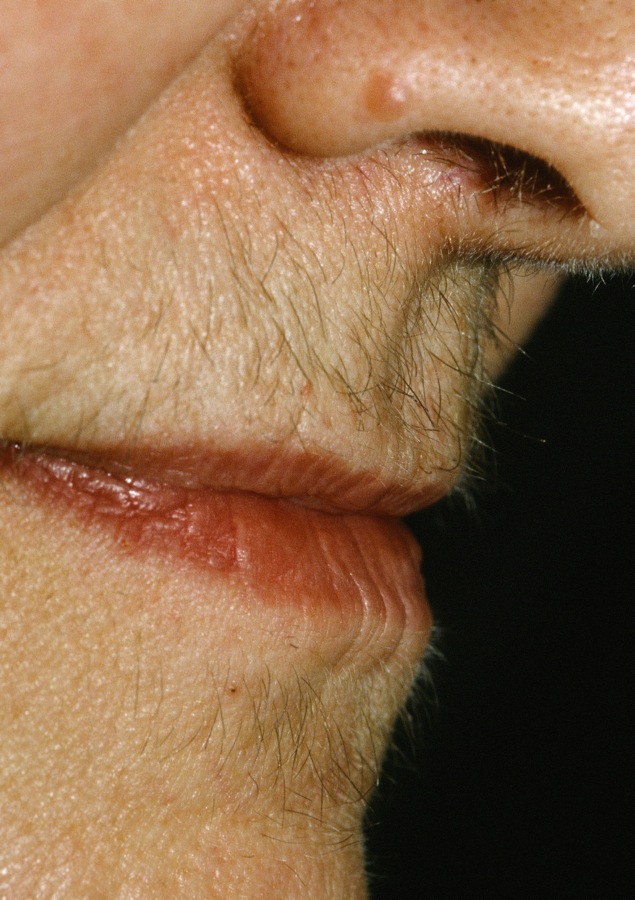
HIRSUTISM
Hirsutism may be broadly defined as excessive terminal hair in a woman in the androgen-sensitive areas, e.g., upper lip, cheeks, chin, breasts, and lower abdomen. Various causes include polycystic ovary syndrome, nonclassic adrenal hyperplasia, and adrenal or ovarian tumors, but many women have idiopathic hirsutism.
- Insulin resistance has been linked to hirsutism. Patients with insulin resistance are more likely to be obese and have acanthosis nigricans as well.
- Laboratory evaluation may include dehydroepiandrosterone sulfate (DHEAS), testosterone, and prolactin. However, these are usually normal.
- When signs of virilization are present (e.g., deep voice, clitoral hypertrophy, hair loss), the presence of a hormone-secreting tumor should be considered.
Clinical
Excessive terminal hair is seen on the upper lip, cheeks, and chin in a woman with hirsutism. The breasts, lower abdomen, and elsewhere may also be affected.
Differential Diagnosis
Causes of excessive hair in a woman:
- Idiopathic--common in certain races, e.g., Euro-Asian
- Polycystic Ovary Syndrome--typical features include menstrual irregularities, hyperandrogenism, infertility, and obesity.
- Adrenal Hyperplasia
- Adrenal or Ovarian Tumor
- Drugs e.g., cyclosporin, minoxidil
Workup
One may obtain a DHEAS, free testosterone and prolactin.
RegionalDerm
Homepage | Who is Dr. White? | Privacy Policy | FAQs | Use of Images | Contact Dr. White
It is not the intention of RegionalDerm.com to provide specific medical advice, diagnosis or treatment. RegionalDerm.com only intends to provide users with information regarding various medical conditions for educational purposes and will not provide specific medical advice. Information on RegionalDerm.com is not intended as a substitute for seeking medical treatment and you should always seek the advice of a qualified healthcare provider for diagnosis and for answers to your individual questions. Information contained on RegionalDerm.com should never cause you to disregard professional medical advice or delay seeking treatment. If you live in the United States and believe you are having a medical emergency call 911 immediately.
